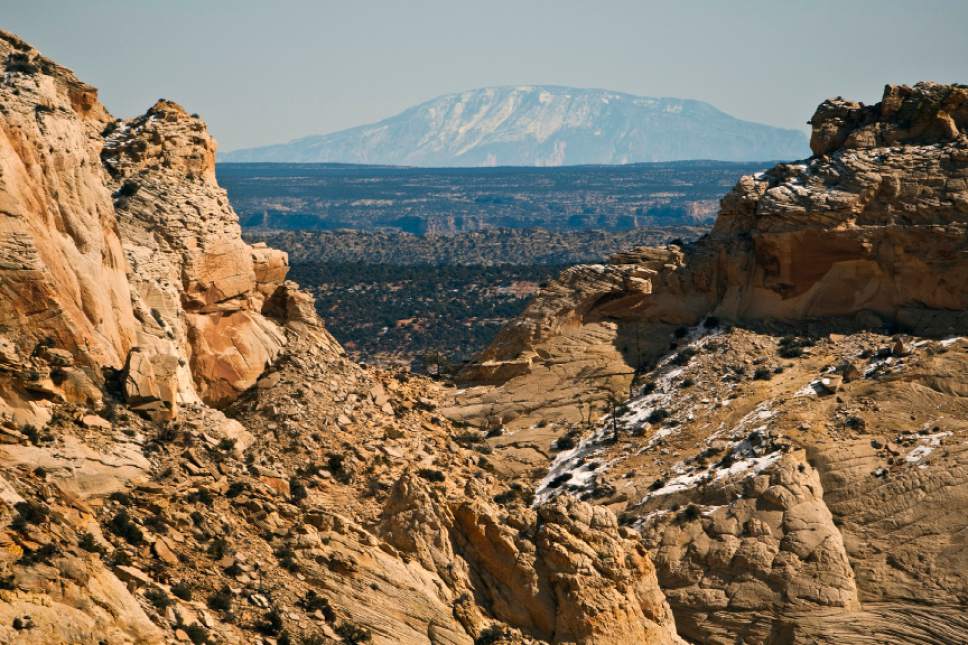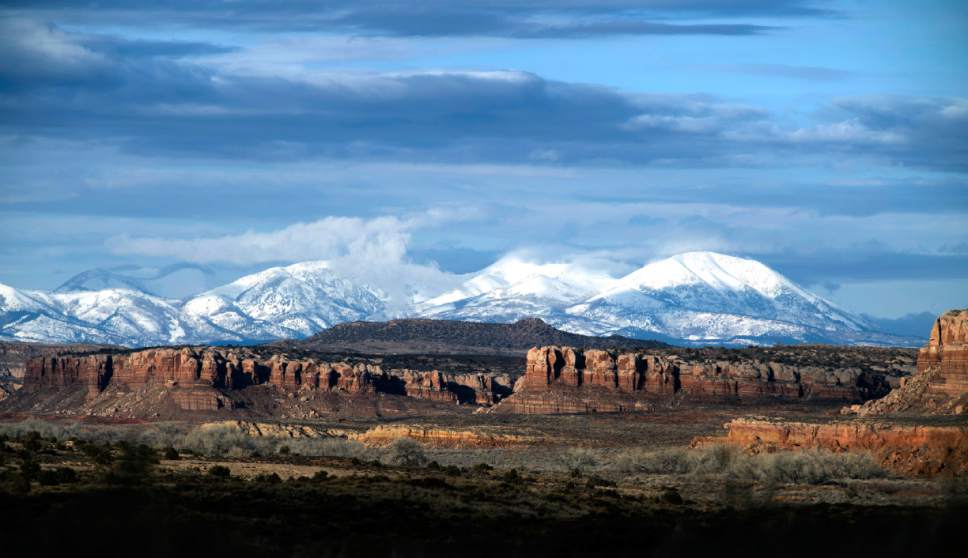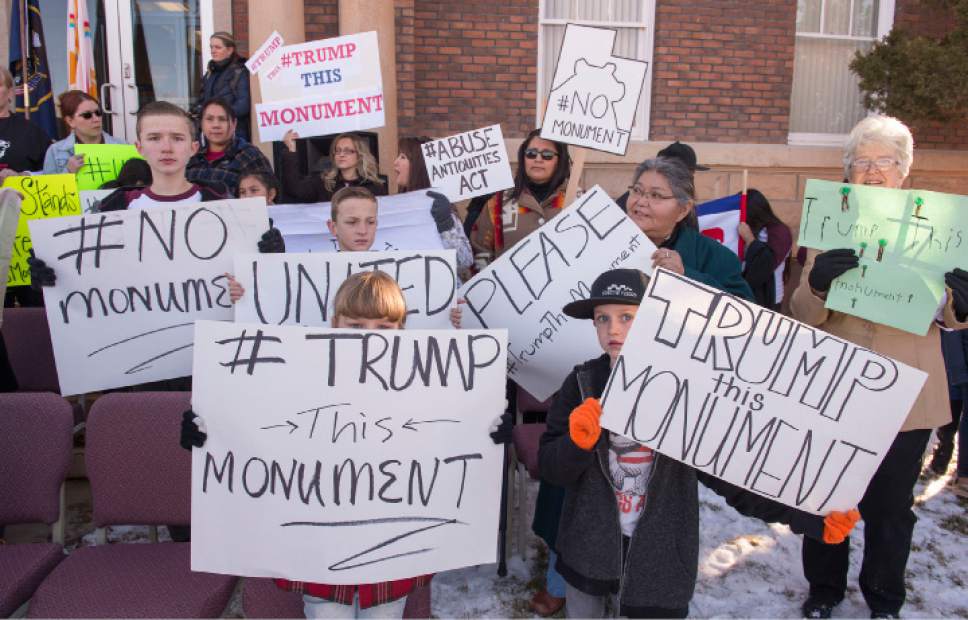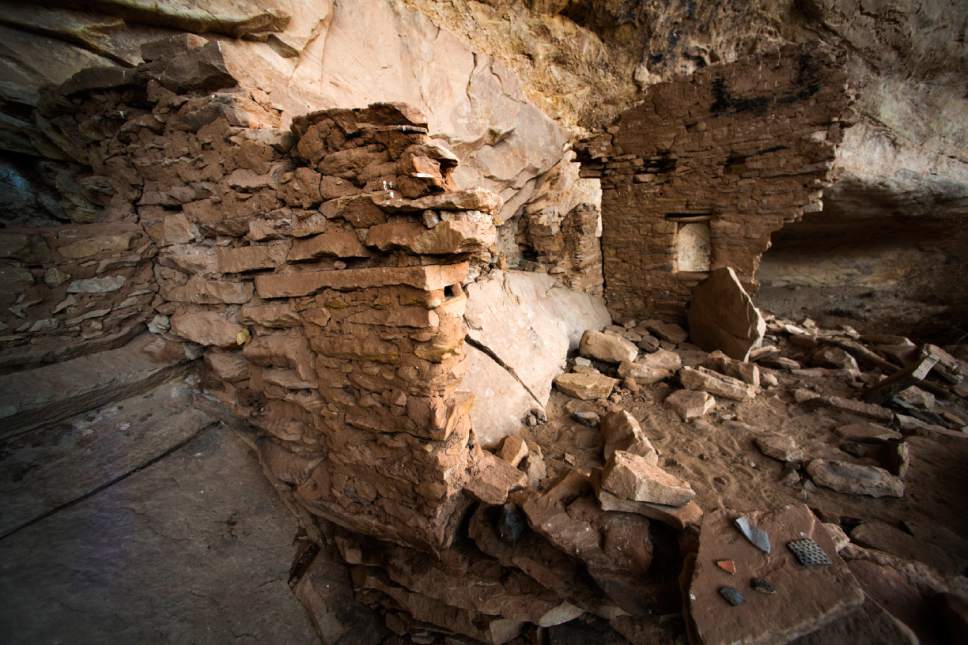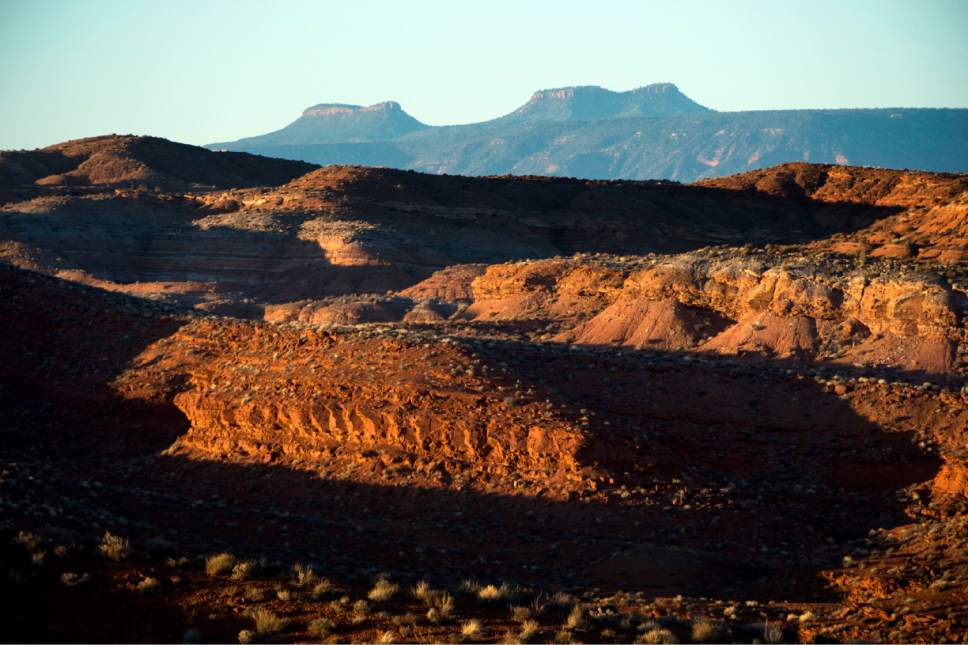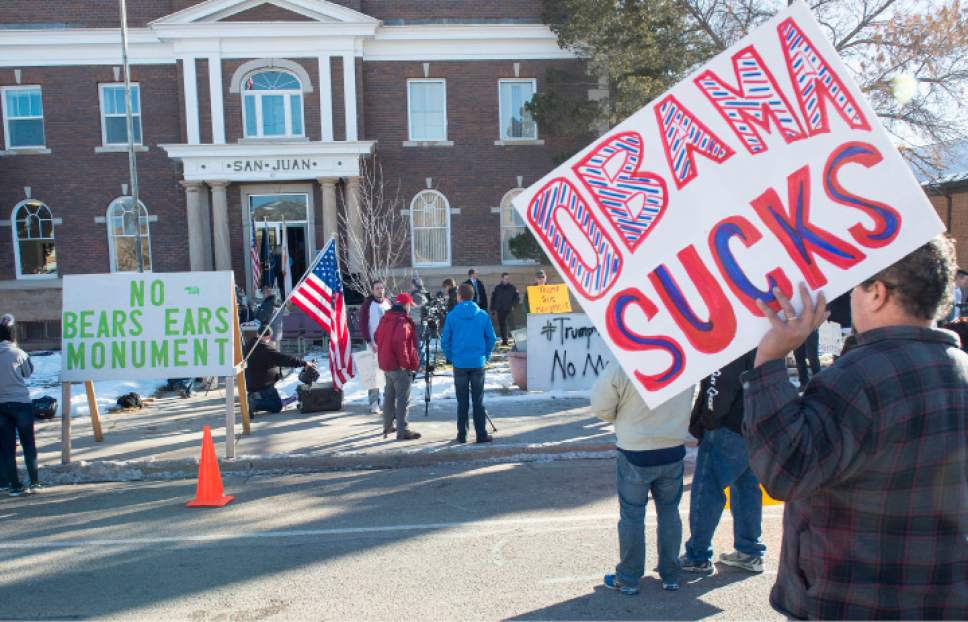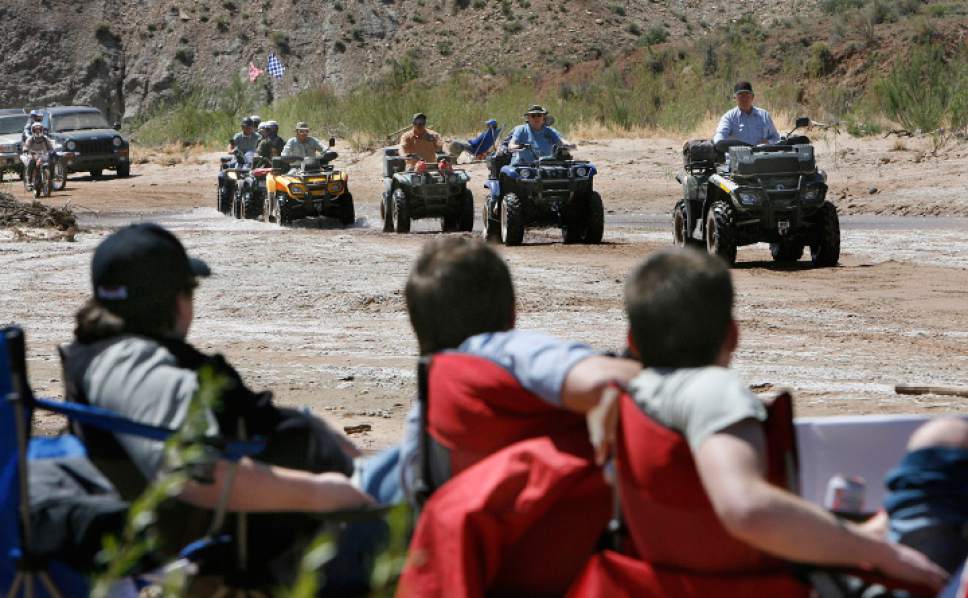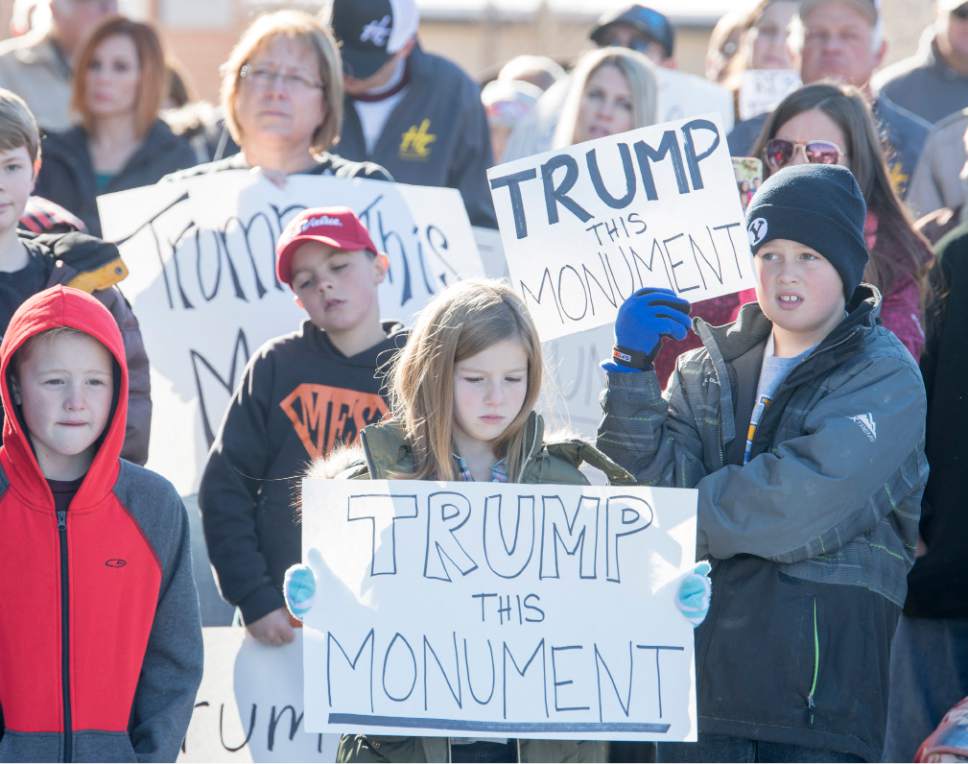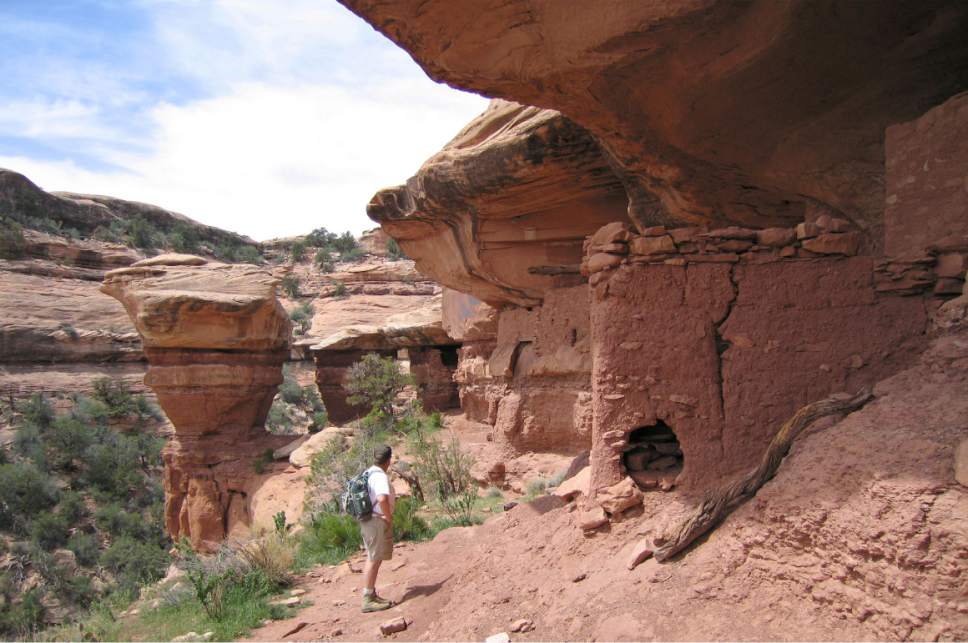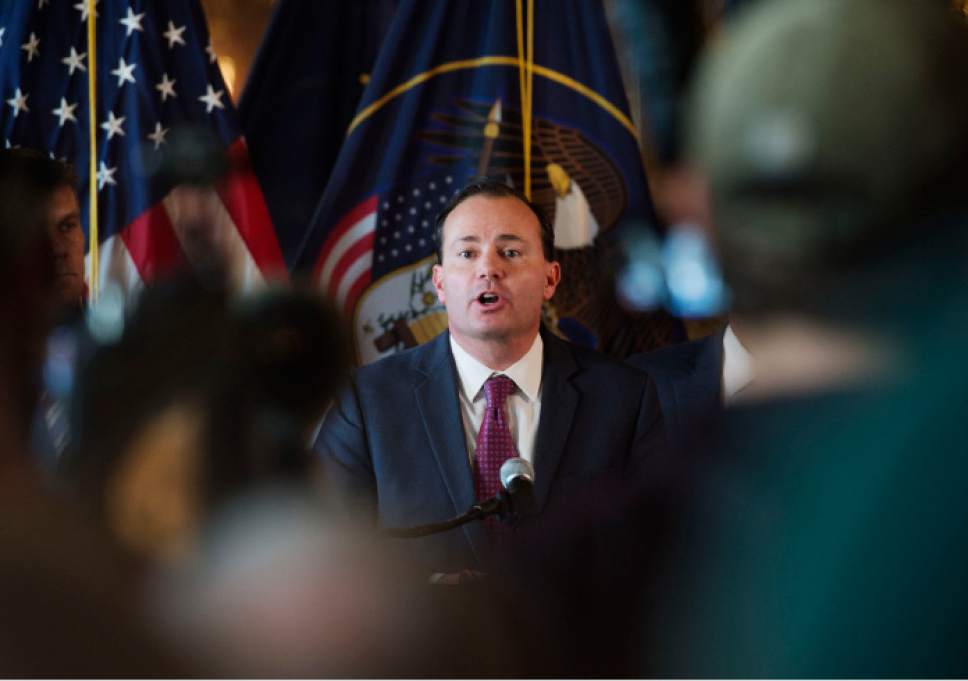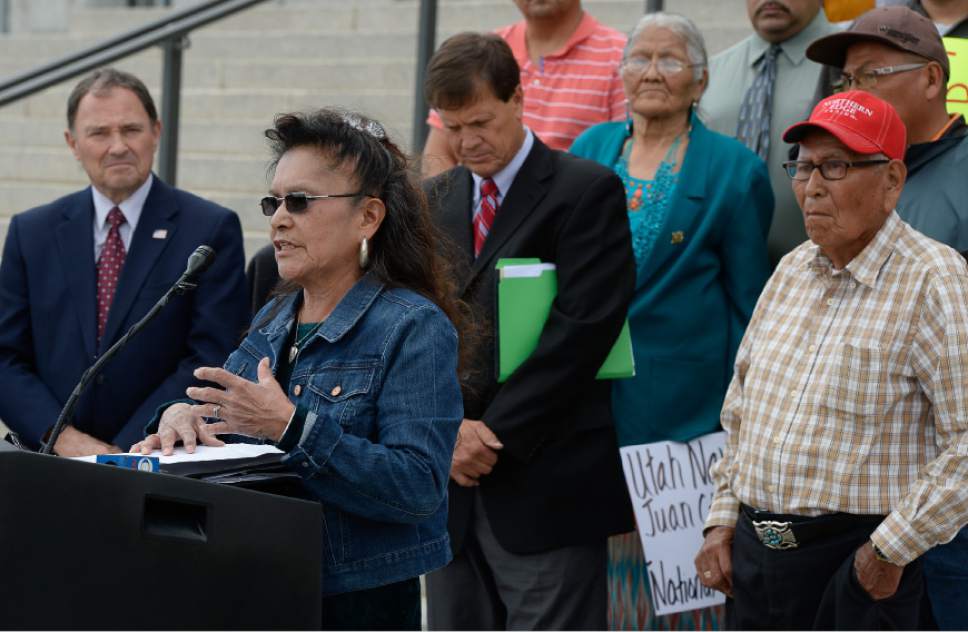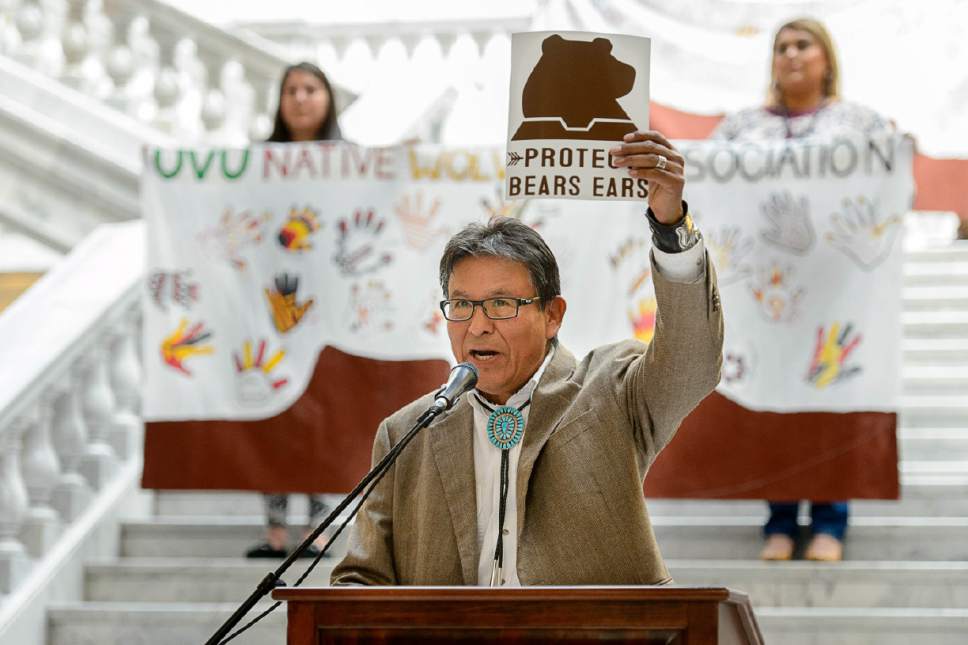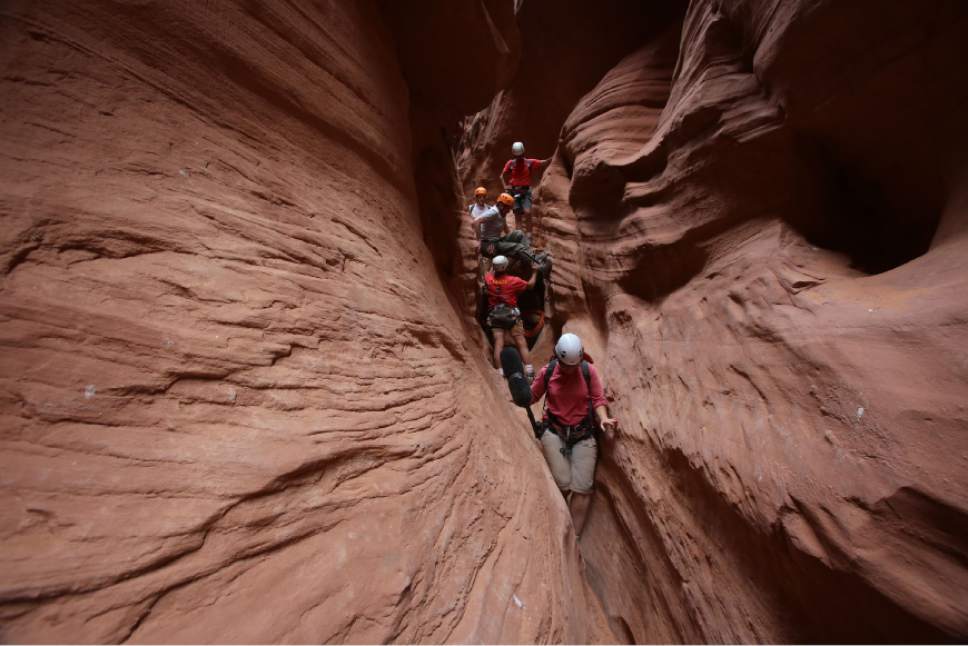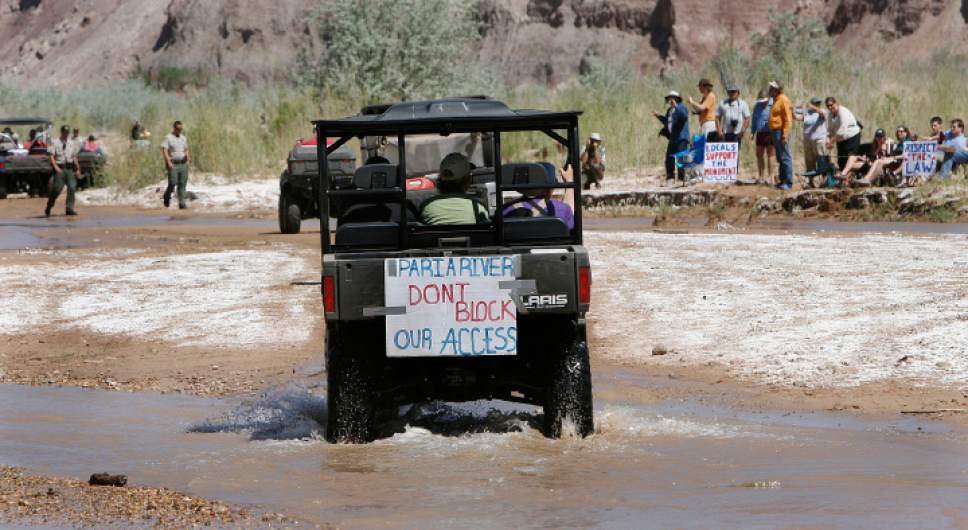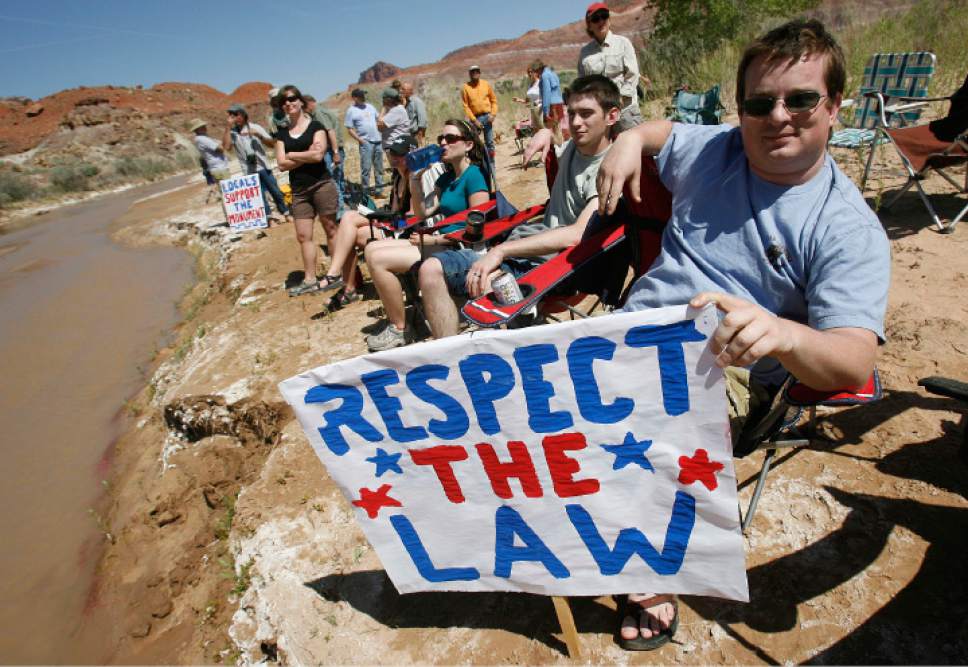This is an archived article that was published on sltrib.com in 2017, and information in the article may be outdated. It is provided only for personal research purposes and may not be reprinted.
Washington • President Donald Trump this week will order a review of national monument designations — including southern Utah's Bears Ears and Grand Staircase-Escalante — as part of a wide look at a century-old law that allows presidents to set aside federal lands without congressional approval.
On Wednesday, Trump will sign an executive order to demand that the Interior Department secretary examine all national monument designations in the past 21 years to discern whether their size and scope are within the law's intent, a move that tracks clearly with concerns of members of Utah's federal delegation about the use of the unilateral presidential power in designating monuments.
A senior White House official, who was not authorized to speak publicly, told The Salt Lake Tribune on Sunday that the review will stretch back a couple of decades — including President Bill Clinton's 1996 naming of the Grand Staircase-Escalante National Monument — but mainly was prompted by President Barack Obama's last-minute naming of Bears Ears National Monument in December.
The order is not expected to change the designations immediately but has a short time frame for the Interior Department to report back on the designating of monuments back to Jan. 1, 1996. Clinton had named the nearly 1.9 million-acre Grand Staircase in September 1996.
Many of Utah's top federal and state officials have called for a rescission — or at least a resizing — of the Grand Staircase and Bears Ears monuments.
While no president has attempted to withdraw a monument named by a predecessor, there have been those who have scaled back those designations.
For his part, Sen. Orrin Hatch, R-Utah, has pressed Trump for action on the Bears Ears declaration and visited the area last week.
"For years, I have fought every step of the way to ensure that our lands are managed by the Utahns [who] know them best and cherish them deeply," Hatch said in a statement Sunday night. "That's why I'm committed to rolling back the egregious abuse of the Antiquities Act to serve far-left special interests. As part of this commitment, I have leveraged all of my influence — from private meetings in the Oval Office in the president's first week in office to my latest trip to Bears Ears this week — to ensure that this issue is a priority on the president's agenda."
Environmental groups quickly raised concerns that Trump was acting without looking at the reasons that Obama used the 1906 Antiquities Act to preserve the 1.35 million acres of Bears Ears as well as the now 20-year-old Grand Staircase.
"Utah's national monuments are our first line of defense against the very real specter of climate change, providing resiliency to not only the species within them, but also to nearby communities," said Jen Ujifusa, legislative director of the Southern Utah Wilderness Alliance. "President Trump and the Utah delegation should focus their energies on solving America's challenges, rather than unraveling the solutions that are already working."
Josh Ewing, executive director of the Friends of Cedar Mesa, which along with an American Indian tribal coalition had pushed for the monument declaration, said he welcomes the review because, if done correctly, it will show the need for protection of the area.
"I would look forward to a serious review of Bears Ears by the secretary and by the Interior [Department]," Ewing said. "I think the conclusion they would come to, if they really look at the international significance of this place, is they would come to the same conclusion that [former Interior] Secretary [Sally] Jewell did after spending five days on the ground and a huge public meeting — which is that this place deserves to be protected and the only practical way to protect it is the Antiquities Act. So I would welcome a review as long as it is a serious one where they spend time on the ground and look at the resources and look at the data."
Utah's federal and state leaders had been pushing a legislative solution to shield the Bears Ears and other areas. But the measure, which some complained was too friendly to mining and development interests, failed to pass in the waning days of the past congressional session after tribal and environmental groups complained that their concerns were ignored.


